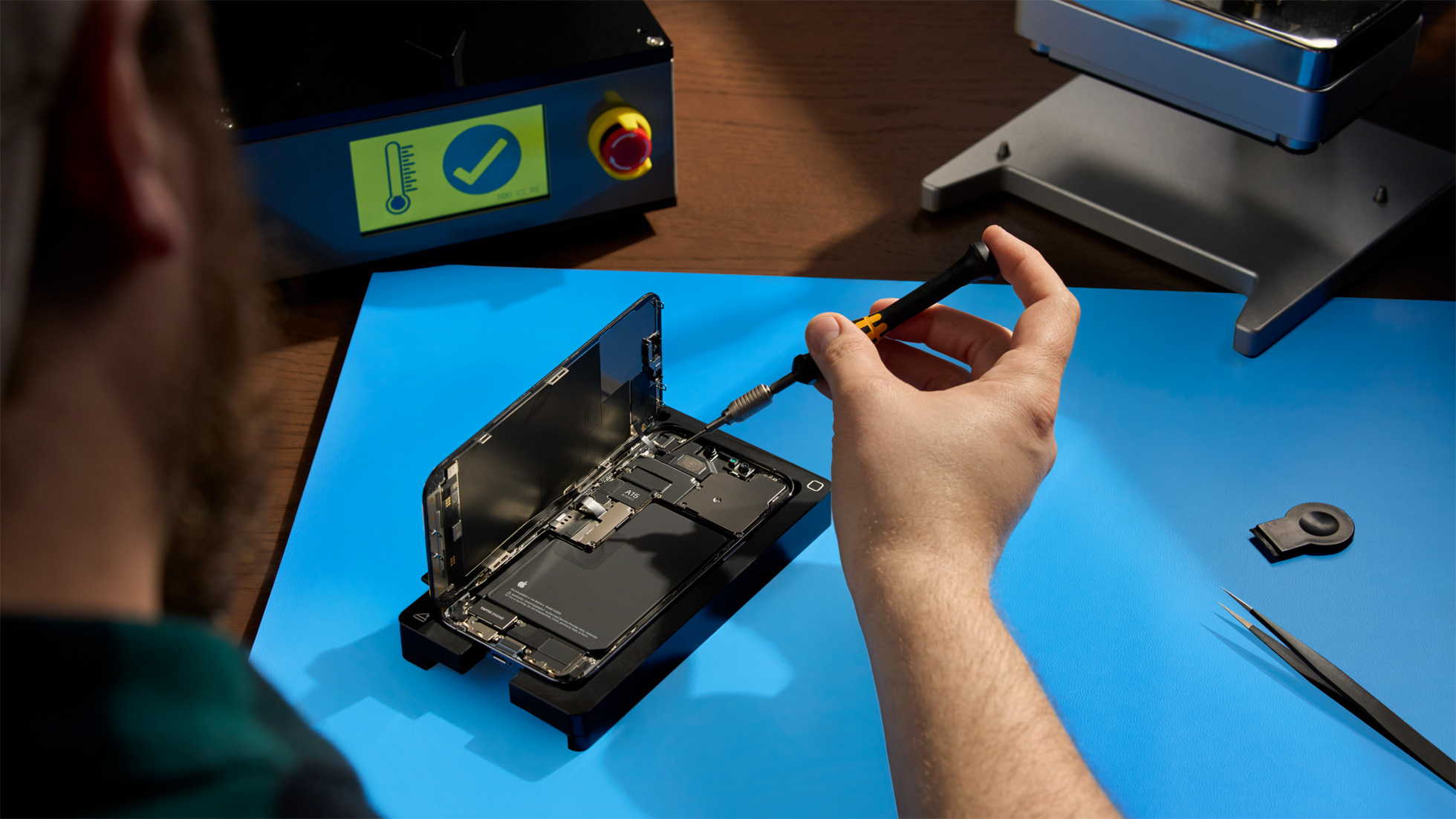Apple's controversial iPhone parts pairing process will be illegal in one US state from next year
Change is coming.

iMore offers spot-on advice and guidance from our team of experts, with decades of Apple device experience to lean on. Learn more with iMore!
You are now subscribed
Your newsletter sign-up was successful
Apple has long taken part in a controversial parts pairing process that requires specific iPhone parts be paired with devices in order to make them work correctly, but that will no longer be an option in one U.S. state starting next year.
Parts pairing has proven to be a problem on multiple levels, not least because independent repair shops have found it difficult to offer the services and competitive prices that their customers need due to Apple's restrictions on the parts that can be used. Right to Repair advocates have long pointed to the issue as an example of Apple trying to put such repair shops out of business, and now it's a process that will be illegal in Oregon starting in 2025.
The news comes after Oregon Governor Tina Kotek signed a Right to Repair Act into law which means manufacturers must provide more repair options, going beyond what any other state has so far done. Similar to existing laws elsewhere, this one will require that manufacturers offer the same parts and tools to individuals and repair shops that they already provide to their partners and repair teams. But Oregon's law goes further by preventing schemes that require parts be verified via software checks — like Apple's part pairing process.
Starting 2025
“By eliminating manufacturer restrictions, the Right to Repair will make it easier for Oregonians to keep their personal electronics running," Charlie Fisher, director of Oregon's chapter of the Public Interest Research Group (PIRG), said in a statement spotted by ArsTechnica. "That will conserve precious natural resources and prevent waste. It’s a refreshing alternative to a ‘throwaway’ system that treats everything as disposable.”
Apple, predictably, already said that it opposed the law with the company sending a senior design manager to testify in a hearing related to the law last month. John Perry argued that the ban on parts pairing would "undermine the security, safety, and privacy of Oregonians by forcing device manufacturers to allow the use of parts of unknown origin in consumer devices."
Apple already offers people the chance to repair their own devices at home via its Self Service Repair program, offering official parts and the loan of the required tools to carry out repairs. But this change would remove the need for people to undertake the work themselves and allow third-party repair shops to either reuse parts from broken devices or potentially use aftermarket alternatives.
Apple's parts pairing has surfaced in a few ways in recent years. The iPhone 13 prevented Face ID from working when a non-genuine display was installed, for example, while other iPhones have also been found to do similar things. Apple's stance was that the process ensured that Face ID could not be hijacked to allow an unverified person access to an iPhone, however.
iMore offers spot-on advice and guidance from our team of experts, with decades of Apple device experience to lean on. Learn more with iMore!
Apple now has until next year to change the way it deals with repairs of iPhones and other devices in the state. Ars does note that "there are carve-outs for certain kinds of electronics and devices, including video game consoles, medical devices, HVAC systems, motor vehicles, and—as with other states—'electric toothbrushes,' however.
More from iMore

Oliver Haslam has written about Apple and the wider technology business for more than a decade with bylines on How-To Geek, PC Mag, iDownloadBlog, and many more. He has also been published in print for Macworld, including cover stories. At iMore, Oliver is involved in daily news coverage and, not being short of opinions, has been known to 'explain' those thoughts in more detail, too.
Having grown up using PCs and spending far too much money on graphics card and flashy RAM, Oliver switched to the Mac with a G5 iMac and hasn't looked back. Since then he's seen the growth of the smartphone world, backed by iPhone, and new product categories come and go. Current expertise includes iOS, macOS, streaming services, and pretty much anything that has a battery or plugs into a wall. Oliver also covers mobile gaming for iMore, with Apple Arcade a particular focus. He's been gaming since the Atari 2600 days and still struggles to comprehend the fact he can play console quality titles on his pocket computer.
